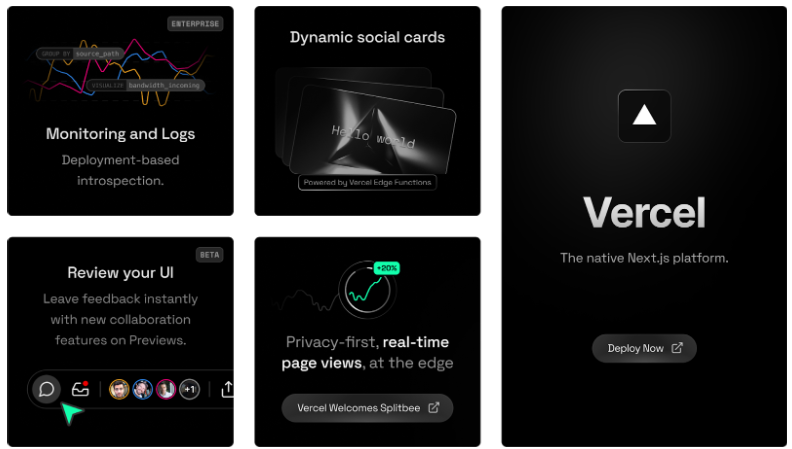Vercel
What is Vercel?
Definition:
Vercel is a cloud platform that provides a seamless and efficient environment for deploying, hosting, and scaling web applications. It is designed to simplify the process of taking a web project from development to production, offering features like automatic deployments, serverless functions, and edge networking.
Analogy:
Think of Vercel as a highly efficient and organized airport for your website. Similar to an airport that manages the arrival and departure of flights, Vercel manages the deployment and hosting of your web application, ensuring it reaches users quickly and reliably.
Further Description:
Vercel’s key features and functionalities include:
Automatic Deployments: Vercel integrates with version control systems like Git, enabling automatic deployments whenever changes are pushed to the repository. This streamlines the development workflow and ensures that the latest version of the application is always live.
Serverless Functions: Vercel supports serverless computing, allowing developers to write serverless functions that run in response to events without the need for managing servers. This helps in building scalable and cost-effective applications.
Edge Networking: Vercel leverages a global content delivery network (CDN) to distribute your application’s assets to servers strategically located worldwide. This results in faster loading times for users, as content is delivered from servers closer to their geographical location.
Custom Domains: Users can easily associate custom domain names with their Vercel deployments, allowing them to have a branded and personalized web presence.
Why is Vercel Important?
Efficiency in Deployment: Vercel streamlines the deployment process, reducing the time and effort required to take a project live. This efficiency is crucial for rapid development cycles and continuous integration.
Scalability: With support for serverless functions and a global CDN, Vercel enables the development of scalable applications that can handle varying levels of traffic without compromising on performance.
Developer Experience: Vercel prioritizes a developer-friendly experience with features like automatic deployments and a user-friendly dashboard. This focus on the developer’s needs enhances productivity and collaboration.
Global Accessibility: Leveraging edge networking, Vercel ensures that web applications are accessible and performant for users around the world, regardless of their geographic location.
Examples and Usage:
Next.js Applications: Vercel is often used with Next.js, a React framework, for building static and dynamic web applications. The seamless integration between Next.js and Vercel enhances the development and deployment experience.
Personal Portfolios: Many developers and designers use Vercel to host their personal portfolios, taking advantage of the platform’s ease of use and quick deployment capabilities.
E-commerce Websites: Businesses choose Vercel to host their e-commerce platforms, benefitting from the platform’s scalability and global CDN to provide a smooth shopping experience for customers worldwide.
Key Takeaways:
- Vercel automates the deployment process, making it quick and hassle-free.
- The platform supports serverless functions and global CDN, ensuring scalability and optimal performance.
- Vercel prioritizes a positive developer experience with features designed to enhance productivity.
- Leveraging edge networking, Vercel ensures that web applications are accessible and performant globally.





